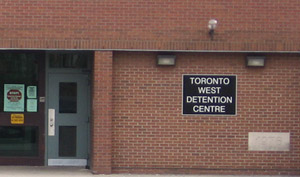 Finance Minister Dwight Duncan’s 2012 Ontario budget calls for reforms to the province’s youth justice system, the Provincial Offences Act, several prison closures, and increased electronic court services to combat the province’s rising deficit.
Finance Minister Dwight Duncan’s 2012 Ontario budget calls for reforms to the province’s youth justice system, the Provincial Offences Act, several prison closures, and increased electronic court services to combat the province’s rising deficit. Billed by Duncan as one of the toughest yet, this week’s budget includes significant cuts to program spending across the board to contain costs by $17.7 billion over the next three years, while increasing revenues by $4.4 billion, all without raising taxes.
In the justice sector, the budget touches on the following:
The youth justice system:
The budget proposes closing the Bluewater Youth Centre in Goderich and downsizing the Brookside Youth Centre in Cobourg and the Cecil Facer Youth Centre in Sudbury. It also suggests reducing the number of transfer payment agencies contracted to supply open custody services.
According to the ministry, the Youth Criminal Justice Act has led to decreased custodial sentences for youth since 2003 and has diverted more youth to community-based alternatives for less serious offences, creating a reduction in demand for youth justice custody, and consequently, the need for several closures.
The Provincial Offences Act:
According to the ministry, uncollected fines related to the POA are a growing problem for the province, adding to a ballooning deficit. To address this, the budget proposes unpaid POA fines be set off against tax refunds issued by the Canada Revenue Agency.
Prison closures:
The 2012 budget confirms the provincial government is moving ahead with fully closing the Toronto West Detention Centre, the Brantford jail, and the Chatham jail in the upcoming years.
According to the ministry, the closures will help “modernize” Ontario’s correctional facilities and create more efficiency within the system. The budget states the closure of the Toronto West Detention Centre will save the province $23 million in 2013-14 and $28 million in 2014-15.
Underutilized prisons in Owen Sound, Walkerton, and Sarnia were closed last year by the province to cut costs, along with a partial closure of the Toronto West Detention Centre.
Electronic court services:
The budget also suggest the provincial government provide some court services online, including court forms, court document filings, and court fee payments. It proposes provincial courts transition to providing 24-hour online service instead of the traditional daytime hours currently provided. It also suggests a significant overview of the court system is needed to ensure courts are receiving the funding where they need it most.
Provincially, the 2012 budget also falls on the heels of the federal omnibus crime bill’s passage earlier this month. Rough estimates project the associated costs to the province at $1 billion for new jail facilities and nearly $145 billion in soft costs resulting from the bill. This year’s budget also projects an increase of $68 million in provincial expenses within the justice sector due to legal settlements under the Proceedings Against the Crown Act and “funding for operational pressures.”







